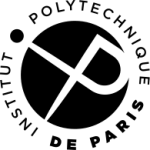Quantum Information
Progress in experimental quantum physics has transformed thought experiments into reality, so that an exciting new question can now be asked : How can we harness the "strange" features of quantum mechanics - such as nonlocality, entanglement, and quantum measurement - in new applications ? In this new field, broadly called “quantum technologies”, new ideas and concepts are being put forward.
The unavoidable interaction between real-world quantum machines and their surrounding environment gives rise to the phenomenon of decoherence. The lecture starts with a discussion of this concept and the related one of open quantum system. Understanding these topics serves as a foundational prerequisite for gaining insight into the challenges confronted by quantum technologies.
The lecture continues with a detailed discussion of entanglement, which is the ressource that enables quantum technologies. We then review some important concepts in Quantum Information, trying to understand how entanglement modifies the theory of information initiated by Shannon.
We then give an introduction to two leading quantum technologies, namely quantum computing and quantum metrology. In quantum computing, where qubits replace classical bits, some specific algorithms may lead to fundamentally faster performances than the best known classical algorithms. In quantum metrology, multiparticle entangled quantum states are employed to improve high-resolution measurements, as for example in interferometers, such as gravitational wave detectors.
I. Open Quantum Systems
I.1. Density matrix
I.2. Quantum map, Kraus decomposition
I.3. Master equation in the Lindblad form
I.4. Generalized measurement (POVM)
II. Entanglement
II.1. CHSH inequality
II.2. Entanglement of bipartite pure states (Schmidt decomposition)
II.3. Entanglement of bipartite mixed states
III. Quantum Information and Communication
III.1. Quantum entropy
III.2. Quantum mutual information
III.3. Holevo bound
III.4. Entanglement assisted protocols
IV. Quantum Computing
IV.1. Universal set of gates
IV.2. Quantum algorithms (Grover, Shor)
IV.3. Quantum error correction
IV.4. Quantum hardware
V. Quantum Metrology
V.1. Fisher information and Cramer-Rao bound
V.2. Quantum Fisher information
V.3. Heisenberg limit for interferometry
Good knowledge of basic quantum physics
Written (3h)

